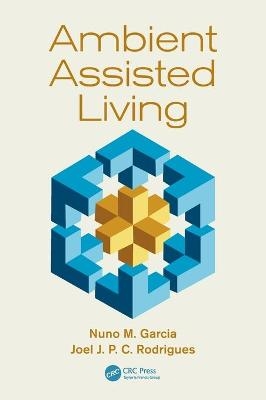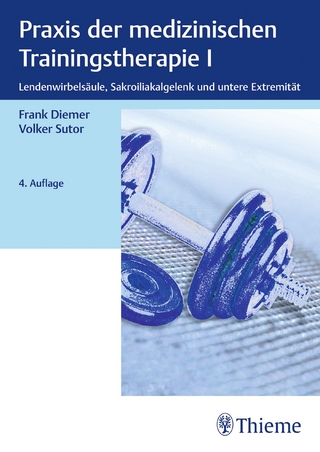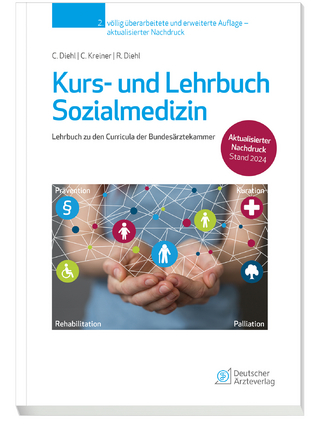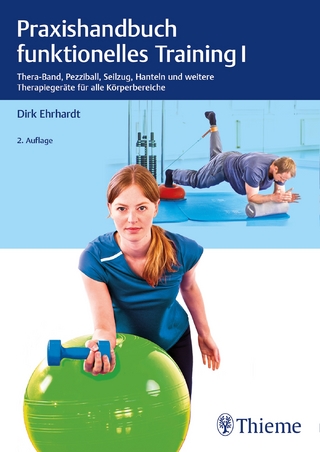
Ambient Assisted Living
Crc Press Inc (Verlag)
978-1-4398-6984-0 (ISBN)
The authors and contributors of Ambient Assisted Living have recognized that the demographic profile is changing in many developing countries and have factored in an inversion of the demographic pyramid. The technology of ambient assisted living (AAL), supports the elderly and disabled in their daily routines to allow for safe and independent living for as long as possible. Dedicated to ambient intelligence—electronic environments that are sensitive and responsive to the presence of people—Ambient Assisted Living highlights the technologies that center on the needs of these special interest groups, such as the elderly or people with disabilities.
Beneficial to students, practitioners, and users of ambient assisted living (AAL), this text compiles scattered information on the subject, outlines the most important and significant work in related literature, and covers the latest hardware and software for ergonomic design pertaining to AAL. From inception to implementation, the text assesses what has been produced and researched so far and looks for trends and clues for the future. It reviews literature on AAL published since 2007 and describes the main features and areas of products or systems that interlink and improve new or existing technologies and systems.
This text:
Provides extensive coverage of the applications, software, and information management for AAL
Contains an overview of the concepts related to AAL
Includes a comprehensive review of the state of the art on pervasive and mobile health (m-health) applications
Describes a set of projects and work with scientific relevance in AAL
Introduces a framework focused on the monitoring and assistance of elderly persons living alone
Discusses a prospective study on technological systems for people with cognitive disabilities
Ambient Assisted Living highlights technologies that adapt to the user rather than the user adapting to the technology. This text proposes technologies that can enable assisted persons to live independently for longer and reduce the need for long-term care.
Nuno M. Garcia holds a PhD in computer science engineering from the University of Beira Interior (UBI, Covilhã, Portugal) (2008). He is assistant professor at UBI and invited associate professor at the Universidade Lusófona de Humanidades e Tecnologias (Lisbon, Portugal). He was founder and is coordinator of the Assisted Living Computing and Telecommunications Laboratory (ALLab), a research group within the Instituto de Telecomunicações at UBI. He was also co-founder and is coordinator of the BSAFE LAB – Law enforcement, Justice and Public Safety Research and Technology Transfer Laboratory, a multidisciplinary research laboratory in UBI. He is the coordinator of the Cisco Academy at UBI and head of EyeSeeLab in EyeSee Lda. (Lisbon, Portugal). He is also chair of the COST Action IC1303 AAPELE – Architectures, Algorithms and Platforms for Enhanced Living Environments. Joel J.P.C. Rodrigues is a professor in the Department of Informatics of the University of Beira Interior, Covilhã, Portugal, and senior researcher at the Instituto de Telecomunicações, Portugal. He received the habilitation in computer science and engineering from the University of Haute Alsace, France; a PhD in informatics engineering; an MSc from the University of Beira Interior; and a five-year BSc (licentiate) in informatics engineering from the University of Coimbra, Portugal. His main research interests include sensor networks, e-health, e-learning, vehicular delay-tolerant networks, and mobile and ubiquitous computing. He is the editor-in-chief of the International Journal on E-Health and Medical Communications, the editor-in-chief of the Recent Advances on Communications and Networking Technology, the editor-in-chief of the Journal of Multimedia Information Systems, and editorial board member of several journals.
Ambient Assisted Living—From Technology to Intervention. Section I Review, State of the Art, and AAL Concepts. Characterization and Classification of Existing Ambient Assisted Living Systems: A Systematic Literature Review. Pervasive and Mobile Health Care Applications. A Review of Monitoring and Assisted Therapeutic Technology for AAL Applications. Implementing Best Evidence-Based Practice into Ambient Assisted Living Solutions: From User Outcome Research to Best Social Practices. A Demonstration Case on the Derivation of Process-Level Logical Architectures for Ambient Assisted Living Ecosystems. Section II Communications in AAL. Enabling AAL Wireless Data Transmission in Home Automation Networks. Mobility and Multihoming Data Transmission Protocols. Power-Aware Communication in Body Area Networks. Wireless Systems Applied to e-Health: Radio-Planning, Energy Efficiency, and System Integration. Section III AAL Applications to Specific Areas. Video Care Services: AAL Solution for Dementia Support—State of the Art of Research and Intervention. Telemedicine Scenario for Elderly People with Comorbidity. A Framework for Monitoring and Assisting Seniors with Memory Disabilities. Ambient Assisted Living—From Technology to Intervention. Innovative Solutions for Inclusion of Totally Blind People. Section IV Business Models and Study Cases. A Business Model for Ambient Assisted Living Solutions. Social Innovations and Emerging Business Models in the Field of Ambient Assisted Living: Reflection on a Pilot Project. The Living Usability Lab Architecture: Support for the Development and Evaluation of New Ambient Assisted Living Services for the Elderly. Promoting Independent Living and Recreation in Life through Ambient Assisted Living Technology. Section V AAL Research Topics. From Data to Knowledge: Towards Clinical Machine Learning Automation. Soft Computing Drug Administration in the Ambient Assisted Living Environment. Semantic Framework for Context-Aware Monitoring of Ambient Assisted Living Ecosystems. Collaborative Ecosystem Architecture for Ambient Assisted Living. Social Ambient Intelligence for Assisted Living: Social Context, Networking, and Privacy. WeCare: Cooperating with Older People in the Design and Evaluation of Online Social Networking Services. Ergonomics and Sustainable Engineering: Important Features to Develop Human Sensitivity–Based Projects. Index.
| Reihe/Serie | Rehabilitation Science in Practice Series |
|---|---|
| Zusatzinfo | 56 Tables, black and white; 239 Illustrations, black and white |
| Verlagsort | Bosa Roca |
| Sprache | englisch |
| Maße | 178 x 254 mm |
| Gewicht | 1769 g |
| Themenwelt | Medizin / Pharmazie ► Gesundheitswesen |
| Medizin / Pharmazie ► Physiotherapie / Ergotherapie ► Rehabilitation | |
| Sozialwissenschaften ► Pädagogik ► Sozialpädagogik | |
| Sozialwissenschaften ► Soziologie | |
| ISBN-10 | 1-4398-6984-7 / 1439869847 |
| ISBN-13 | 978-1-4398-6984-0 / 9781439869840 |
| Zustand | Neuware |
| Haben Sie eine Frage zum Produkt? |
aus dem Bereich


